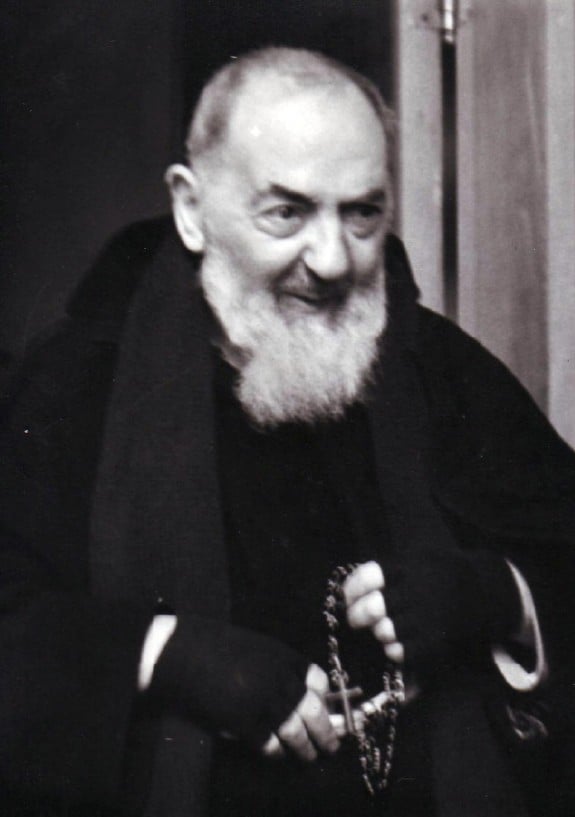I grow weary.
I’m weary of the fighting. The name-calling. The ad hominems. The sneers and finger-pointing. I’m weary of the Catholic-against-Catholic warfare that has left too many muddied and bloodied. I’m weary of Catholics hurling accusations at bishops, notably the Bishop of Rome, in an effort to divide the faithful and turn the flock against the shepherd.
I grow weary.
Scrolling through a few things I’d tossed into my “Pocket” (a great tool, by the way), I stumbled on this excellent piece by Diane Korzieniewski, one of the sanest voices in the Catholic blogosphere, whose Te Deum laudamus! is a source of invaluable good sense. She wrote this post a couple years ago, when the Corapi story was consuming everyone’s attention, but it’s even more apt today. The circumstances are different, but the wisdom here is timeless. It’s long, but take the time to read it all. It’s worth it.
One section really struck me, regarding the case of St. Pio, who had been effectively silenced by Rome. It is a challenge to all those who have made their reputations by turning the faithful against their leadership—those who routinely seek not to unite but to divide the Body of Christ.
St. Pio learned that some men were going so far as to expose scandalous information about high-ranking members of the hierarchy in a book. The effort was aimed at freeing him from his “imprisonment”…
When Padre Pio, however, learned of the forthcoming book, he seized Morcaldi by the throat.“You devil, you!” he roared. “Go, throw yourself at the foot of the Church instead of writing this garbage! Don’t you set yourself up against your Mother!”
St. Pio continued trying to dissuade efforts to end his “imprisonment” through the use of what amounted to blackmail. He did not want scandals exposed, even if they were true, because of the harm that would come to Holy Mother Church, and how it would affect unity. Pio knew that even bishops are not immune to the effects of Original Sin, but that the gates of Hell would not prevail against the Church (Matt 16:18). He accepted what befell him through imperfect men (Matt 23:3), by imperfect means, and he made the best of the situation. In fact, those misguided efforts to free him backfired at one point, bringing even greater trials for St. Pio. He was a man whose virtues were refined like a pencil put into a sharpener, and like steel which is hardened in fire.
Snowballing from that is one more interesting point made by Fr. Hardon in his article, Humility and Obedience in the Priest (which should be required reading in seminaries). Fr. Hardon writes:
Priests are told that, “The priestly ministry, being the ministry of the Church itself, can only be fulfilled in the hierarchical union of the whole body of the Church.” Consequently, a priest is obedient and obediently working with and under and through the hierarchy, or his work will not be blessed by God. There is no such thing as a priest going off on his own, independent of ecclesiastical obedience, and expecting God to grace his labors. A priest is not ordained for himself; he is ordained as the Vulgate has it “ad alios”, for others. But being a priest, he is not only ordained for others; he must also work with others, “cum allis”, and those others are his fellow priests united under the hierarchy..
There’s much more to read over and pray over. I have a lot to learn. I suspect most of us do.
Here’s one for the road:
“The following advice of St. Gregory is useful: whenever you are ‘justly accused’ of a fault, humble yourself, and candidly confess that you deserve more than the accusation which is brought against you; but, if the charge be false, excuse yourself meekly, denying your guilt, for you owe this respect to truth, and to the edification of your neighbor. But if, after your true and lawful excuse, they should continue to accuse you, trouble not yourself nor strive to have your excuse admitted; for, having discharged your duty to truth, you must also do the same to humility, by which means you neither offend against the care you ought to have of your reputation, nor the love you owe to peace, meekness of heart, and humility.”












